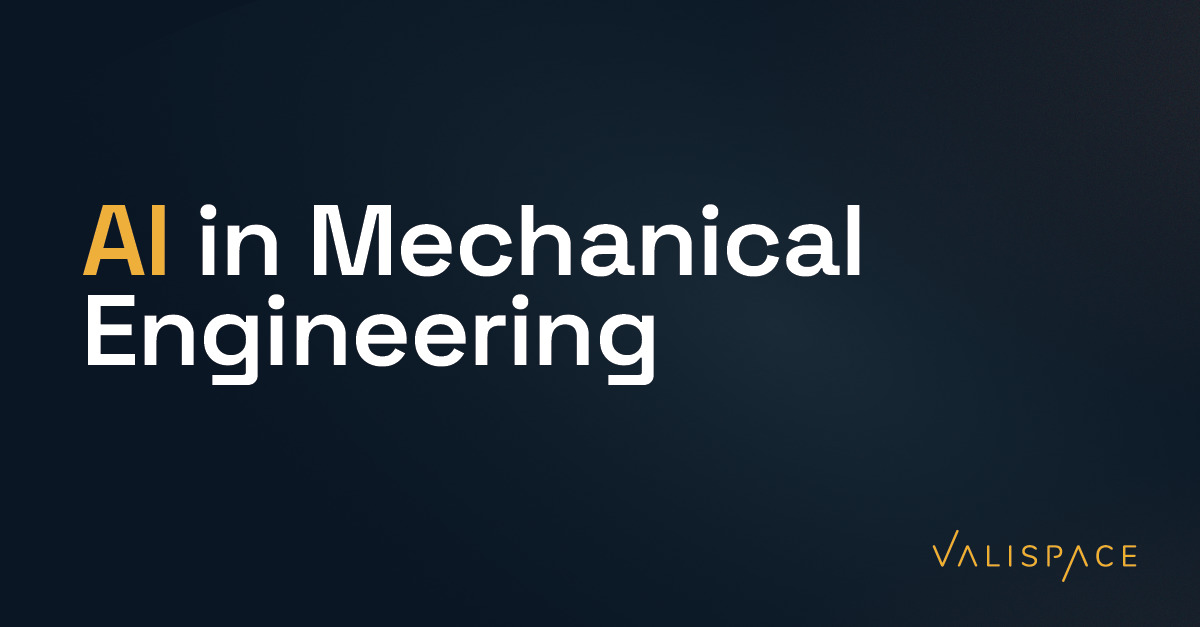
In the industry of mechanical engineering, AI has been nothing short of revolutionary. By integrating AI in modern engineering, engineers are now pushing the boundaries of innovation, optimizing designs, and redefining the efficiency of manufacturing processes. This shift is not just about faster outcomes; it’s about reimagining what’s possible in mechanical engineering.
The Impact of AI on Mechanical Engineering
The impact of AI in mechanical engineering is huge. It offers new perspectives in tackling complex design challenges, transforming traditional methodologies into more dynamic and responsive processes. This transition enables engineers to focus more on creative solutions rather than getting bogged down by repetitive tasks.
Revolutionizing Design and Prototyping
Reducing Design Time and Errors
AI algorithms excel in analyzing vast datasets, enabling them to identify the most efficient design pathways. This not only slashes the time taken to develop prototypes but also significantly reduces the margin for error, leading to more reliable and accurate designs.
Enhancing Precision and Performance
AI-driven tools aid in refining design specifications, ensuring a higher level of precision. This results in enhanced performance and durability of the final products, essential for today’s demanding market.
Optimizing Manufacturing Processes with AI
Increasing Efficiency and Reducing Waste
AI systems in manufacturing processes streamline operations, leading to increased efficiency and significant reductions in waste. This sustainable approach not only cuts costs but also aligns with the global push towards environmentally friendly practices.
Predictive Maintenance for Uninterrupted Production
With AI, predictive maintenance becomes more accurate, preventing unexpected downtime in production lines. This proactive approach ensures continuous and efficient production cycles.
Key Applications of AI in Mechanical Engineering
Smart Design and Planning
AI systems provide engineers with advanced tools for smarter design and planning. They help in simulating multiple scenarios, leading to better-informed decisions early in the design phase.
Automated Construction Processes
The integration of AI in construction processes not only speeds up the building phase but also enhances safety, reducing human error and workplace accidents.
Maintenance and Infrastructure Management
AI in maintenance streamlines the upkeep of machinery and infrastructure. Its predictive capabilities allow for timely interventions, ensuring longevity and consistent performance.
AI Systems Engineering Tools in Mechanical Engineering: Enhancing Innovation and Efficiency
Nowadays, AI systems engineering tools are crucial for driving innovation and enhancing efficiency. These tools offer advanced capabilities in design optimization, data analysis, and project management, reshaping traditional engineering approaches.
Several tools stand out in this landscape:
- Simulation Software: Advanced simulation tools use AI to predict how designs will perform under various conditions, allowing engineers to optimize designs before physical prototypes are made.
- Data Analysis Platforms: These platforms leverage AI to process vast amounts of data from tests and simulations, providing insights that guide design improvements and decision-making.
- Collaborative Engineering Tools: Platforms like Valispace fall into this category. They provide an integrated environment for systems and requirements engineering, facilitating collaboration and data sharing across different engineering disciplines. Valispace, for example, combines system design with requirements engineering in an AI-assisted, data-driven approach, enhancing the coherence and efficiency of the engineering process.
- Predictive Maintenance Tools: Utilized in the manufacturing phase, these tools predict equipment failures before they occur, ensuring uninterrupted production and extending machinery life.
Challenges and Considerations in Adopting AI
While the potential of AI in mechanical engineering is immense, it’s important to navigate its adoption carefully. Challenges such as data security, ethical considerations in AI decision-making, and the need for skilled professionals to manage AI systems are pivotal.
Navigating the Future of Mechanical Engineering with AI
The future of AI in mechanical engineering is incredibly promising, with emerging technologies like machine learning, robotics, and advanced simulation models paving the way for even more groundbreaking innovations.
The integration of AI in mechanical engineering is reshaping the landscape of design, manufacturing, and maintenance. As we continue to explore these advancements, it’s crucial to stay informed and engaged with the latest developments. Readers are encouraged to delve deeper into related topics and understand how AI continues to revolutionize this field.
